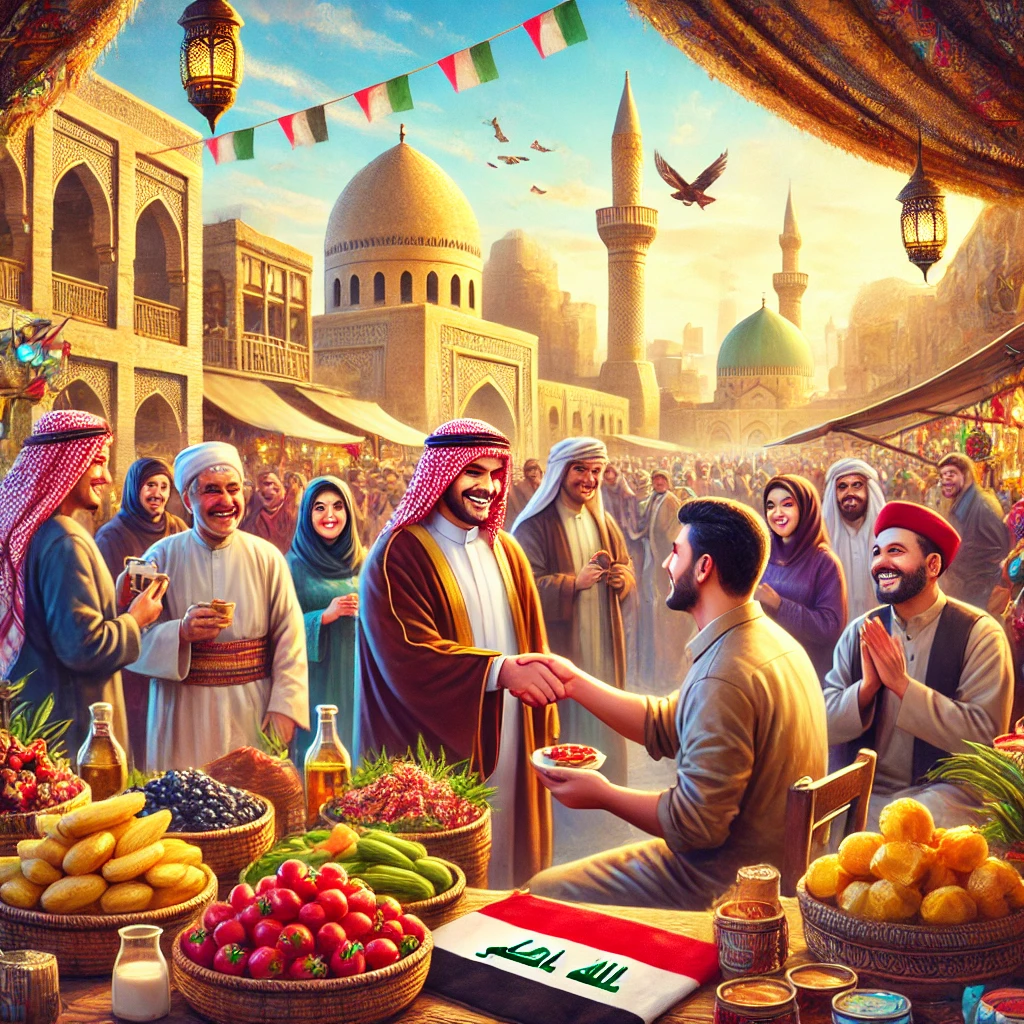Some questions must be answered about Iraq
Is it safe to travel to Iraq?
Yes! Iraq is often misunderstood when it comes to safety. In fact, crime rates, including robbery, are significantly lower in Iraq than in many European countries, such as the UK. While it’s important to stay informed about certain regions, many parts of Iraq are welcoming, peaceful, and eager to receive visitors. Iraqis take great pride in helping tourists, often going out of their way to ensure your safety and comfort.
Are tourists safe in Iraq?
Yes, in fact Iraq has a declining crime rate and in comparison to the UK and Europe. Iraq has higher safety scale index.
Do I need a visa to travel to Iraq?
Yes, most travellers will need a visa, but the process is quite straightforward. Depending on your nationality, you may be able to apply online or get a visa upon arrival at the airport, making it convenient for visitors eager to explore the country’s rich history and culture.
What are the best places to visit in Iraq?
Iraq is home to some of the most impressive historical and cultural sites in the world! From the ancient ruins of Babylon to the beautiful landscapes of the Marshlands and the historic Erbil Citadel. Tourists are often amazed by the beauty and significance of these sites, many of which are less crowded than popular destinations in Europe or Asia.
What is the best time of year to visit Iraq?
The best time to visit Iraq is during the cooler months from October to April, when the weather is pleasant and perfect for exploring. Unlike other destinations, you’ll find fewer tourists during these times, allowing for a more intimate and relaxed travel experience.
What should I wear in Iraq?
Iraqis are known for their hospitality and understanding, so travellers are welcome as long as they respect local customs. Modest clothing is appreciated, especially in more traditional areas, but there is no need to worry, people in Iraq are accommodating and eager to share their culture with you.
What languages are spoken in Iraq?
Arabic and Kurdish are the official languages, but don’t worry – English is spoken in many places, especially in cities and tourist areas. Iraqi people are incredibly helpful and will make an effort to communicate with you, often going above and beyond to assist.
What vaccinations or health precautions are needed?
Like any international travel, it’s good to be prepared, but Iraq doesn’t have any unusual health risks. Basic vaccinations are recommended, and you’ll find modern healthcare facilities in major cities. Plus, the food is incredibly fresh, often home-cooked by locals who are more than willing to share their meals with guests!
What currency is used in Iraq, and can I use credit cards?
Iraq uses the Iraqi Dinar (IQD), and while cash is common in smaller towns, many places in the cities accept credit cards. There are ATMs available in major areas, and Iraqi people are more than happy to help you navigate currency exchange or payment options.
Are there any specific customs or cultural norms I should be aware of?
Iraqis are renowned for their hospitality, visitors are often treated like family. While it’s always good to be mindful of local customs, you’ll find that Iraqis are eager to welcome you into their homes and share their food, culture, and traditions with open arms. Respecting simple gestures, like removing shoes when entering a home, will be greatly appreciated.
What are transportation options within Iraq?
Transportation is straightforward, with options like taxis, buses, and even private drivers available at affordable rates. Many tourists are pleasantly surprised by how easy it is to travel between cities, and locals will often offer to guide you or point you in the right direction. Traveling around Iraq can be a truly enjoyable experience, with people motivated to help and support you along your journey.
Is tourism allowed in Iraq?
Yes, tourism is permitted in Iraq, and the country has been making efforts to boost its tourism industry. With its rich history and archaeological sites like Babylon, Ur, and the ancient city of Nineveh. Religious tourism is also prominent, with holy cities like Najaf and Karbala drawing millions of visitors each year. The northern Kurdistan Region, with its mountains, lakes, and cultural attractions. Iraq has become a hotspot for travellers looking for a different Middle Eastern experience.
Is it expensive to live in Iraq?
The cost of living in Iraq can vary depending on the region. In cities like Baghdad and Basra, living costs may be higher due to urbanisation, but they are still lower compared to many Western countries. In contrast, the Kurdistan Region tends to be more affordable, with reasonable costs for accommodation, food, and transportation. While international brands and luxury goods may be priced higher, everyday expenses like groceries, dining, and public transport are relatively inexpensive, making it an affordable place for both locals and expats.
What is the Red Zone in Iraq?
The term “Red Zone” was historically used during periods of war and conflict in Iraq, especially following the 2003 invasion, to describe areas with high risks of violence and instability. However, this designation no longer applies today. Over the past several years, Iraq has made significant improvements in security, and many areas previously classified as “Red Zones” have returned to normal life. While travellers should still stay informed, these regions are no longer categorised as active conflict zones.
What is the Green Zone in Iraq?
The Green Zone is a heavily fortified area in central Baghdad, known for its strict security measures. It houses government buildings, foreign embassies, and international organisations, making it one of the safest places in the city. The zone is well-protected and secure, often seen as a symbol of stability within Baghdad. For those visiting the capital, the Green Zone provides a safe environment, especially for diplomatic or business purposes.



